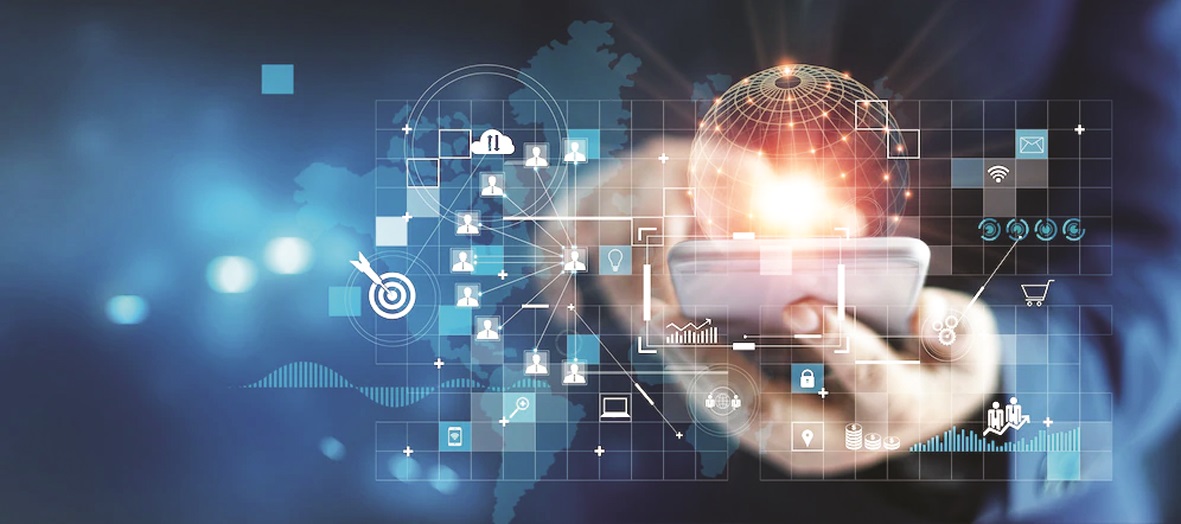In its role as G20 president, India must argue for multidirectional capital and technology flows.
The digital priorities for G20 under the presidency of India should build on key imperatives of a connected world. In the world that we live in, three priorities must define our future: digital inclusion, digital infrastructure and digital information.
DIGITAL INCLUSION: Rise of mobile and data usage is bringing hundreds of millions into the digital mainstream. India alone is expected to have more than 900 million internet users by 2025, according to industry estimates. Other emerging economies in Africa and Asia will also see a rapid rise in online citizens. G20 leaders must plan and prepare for the impact of more than a billion new digital citizens. The increase in online users can create many digital economies for the Global South.
DIGITAL INFORMATION: This digital inclusion must be accompanied by digital information and safety. Broadly, two categories of users will join the digital mainstream. First category are adults from various parts of the world who were on the wrong side of the digital divide. Now they will have improved access to affordable devices and connectivity. Second are minors who are increasingly active on social media platforms and are also keen e-commerce consumers.
These two categories have to be safety, data protection and online behaviour. With the rise of augmented reality and metaverse, the risks to new users are very high. Even experienced users will have to grapple with new technologies of the metaverse and Web3. Their data and information have to be protected from overzealous service providers.
DIGITAL INFRASTRUCTURE: The third priority has to be accelerating investment in digital infrastructure. Here digital infrastructure is a combination of several capabilities. Investment in hardware, cables, connectivity to ensure that network access is available in every part of the world. Apart from undersea cables, internet access is being enhanced with satellite-based systems. These will bring connectivity to the remotest areas of the world.
The second element of this is investment in capacity and capabilities. Not just for makers and users but also for regulators and policymakers. Nearly everyone will have to work hard to keep up with the changes. Regulators will have to improve their understanding of technologies and depend on new tools to keep a strict watch on digital behaviour.
DIGITAL ECONOMIES: G20 leaders been working together to keep the world stable and safe since the financial meltdown of 2008. G20 came together to coordinate fiscal action to contain and recover from the financial crisis created by global giants.
For the nearly 15 years hence, G20 met frequently with some success to collaborate on various issues facing the world. The pandemic and Ukraine war have brought new challenges for the group. Deep shifts in supply chain have impacted manufacturing across the world. An energy crisis has unfolded in Europe while food shortages threaten developing countries.
The fourth industrial revolution of digital technologies has accelerated convenience and comfort for citizens and consumers. The rise of e-commerce, healthtech, fintech and connected devices has reduced the digital divide and brought hundreds of millions into the economic mainstream. However, the weaponization of cyberspace has also unleashed security breaches and a race for tech supremacy among countries.
India has a lot at stake in this era. It has broken through the shackles of socialism and command economy to become a tech-driven entrepreneurial economy. Several years of political stability and economic growth have made India an island of hope in a sea of global turbulence.
India cannot afford to lose this growth and development momentum if global crises fester. While some parts of the developed world argue for deglobalization, India is doing business with the world with tech-fuelled self-reliance. Not only is India investing in its own capabilities, it is also producing an unprecedented range of products and services for the world. From financial payment solutions like UPI to domestically produced vaccines to defence equipment to smart electronics, India has steadily enhanced its position in the global markets.
G20 LEADERSHIP FOR GLOBAL SOUTH
In its role as G20 president, India must argue for multidirectional capital and technology flows. It cannot be that one part of the world produces and the rest of the world just consumes. The G20 has to recognise that the inclusive digital growth will be possible when each country grows equitably and responsibly. The rules for the next phase of innovation, growth and globalization will be co-written by emerging markets.
Here India can present itself as a beacon to the G20 and the developing world. India has shared its achievements with other emerging markets. Preparing the professionals for a new set of talent is as important as changing consumer behaviour for sustainable consumption. Skilling and employability are critical for developing economies which see livelihood generation as a priority. India is building the world’s largest digital public infrastructure. Cowin for vaccines and ONDC for ecommerce are important examples of such initiatives.
India can boast of several initiatives where public private partnership is being driven by trust.
The opening up of sectors like space and defence for private participation is creating a new template for industrialization.
The stunning rise of unicorns has been enabled by a consuming population which is spending increasing amount of time and money for online activities. India is setting global benchmarks of using technology for digital services at scale. India’s presidency of G20 should focus on enabling the creation of digital economies for the Global South.
Pranjal Sharma is a geo-economic analyst and author based in New Delhi, India.

